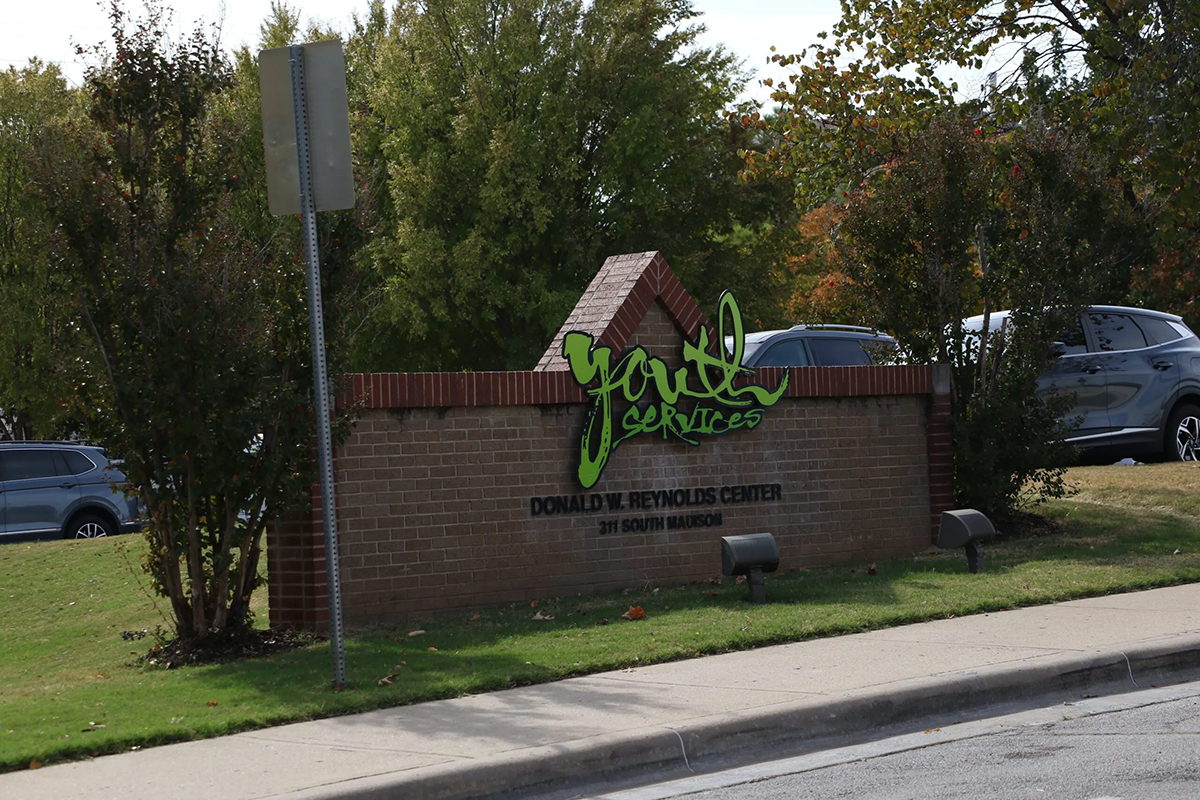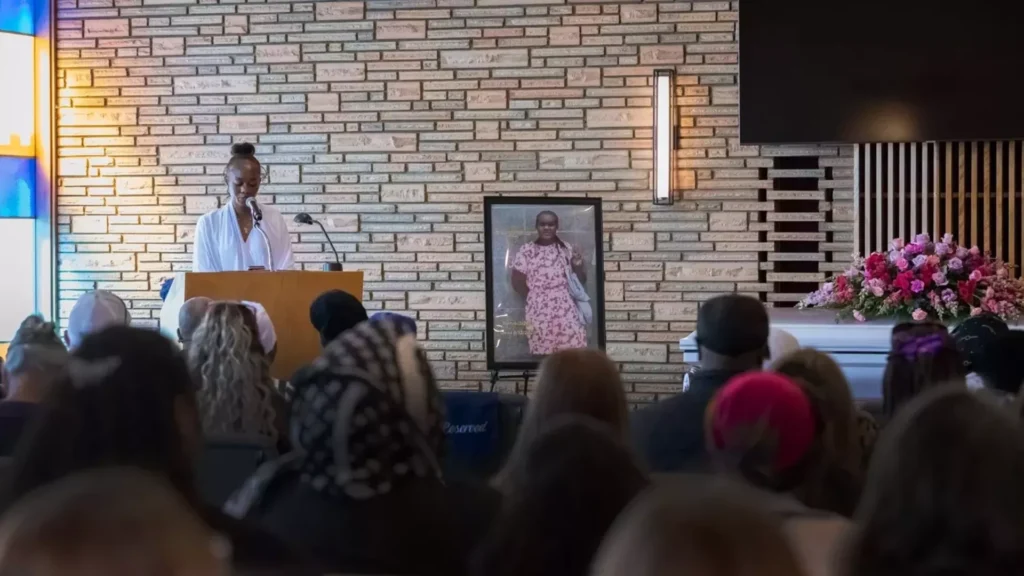Some Oklahoma parents turn kids over to the state after struggling to get mental health care for them

The Frontier by Kayla Branch, December 20, 2024: Once abandoned, these youth can face time in shelters or eventually age out of foster care, advocates and providers say. More intensive services early on could help keep families together.
Tucked between a highway and railroad tracks just east of Tulsa’s downtown, the county’s only emergency youth shelter acts as a temporary home for some teenagers who have been abandoned by their parents and have nowhere else to go.
The common area is various shades of beige with concrete floors and a few tables, couches and TVs. Some of the youth have drawn on the doors to their rooms in chalk — workout routines, nicknames, flowers. Metal cutouts of stars and ‘follow your dreams’ signs hang above the front desk. The kids can be wary of one another and staff, and some say the Youth Services of Tulsa shelter reminds them of a detention center, shelter staff said.
One girl wanders around, complaining about how there’s nothing to do while another boy watches a scary movie. It’s quiet in the shelter except for the sound of screams from the TV.
Over the last several years, the shelter has seen more youth with high mental health care needs, some who have been abandoned by their caregivers, put into state custody and end up at the shelter, said Craig Henderson, director of counseling services at Youth Services of Tulsa, the nonprofit that contracts with the state to run the shelter. The shelter can sleep up to 20 kids.
Oklahoma youth are struggling with anxiety and depression, suicidal thoughts, aggressive behaviors and a lack of coping skills to get through histories of family problems and other traumas. Some have autism or other developmental disabilities.
Some parents, reaching a breaking point or worrying for the safety of other children or themselves, may refuse to pick up their kids from emergency rooms, psychiatric hospitals or detention centers, or may want to leave them at one of the state’s youth shelters, advocates and providers told The Frontier.
While the number of kids coming into state custody has declined over the past five years, abandonment cases have remained steady during that time, according to data from Oklahoma Human Services.




